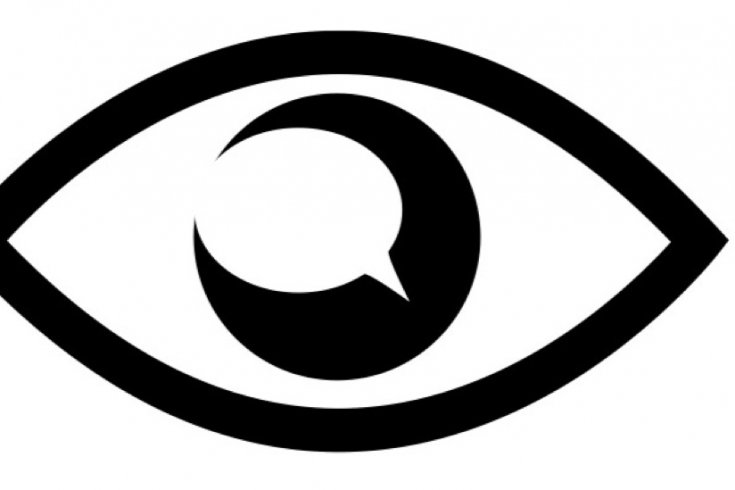
I‘m not sure exactly when Canada struck me anew as a decent place worth fighting for, but it happened sometime this past summer. The arrival of Thomas Noiset, our sixteen-yearold Belgian foreign-exchange student, certainly helped. Six-foot-two, with gorgeous curling blond locks, Thor, as he has affectionately come to be known, came into our lives just as the nights turned cool. He is with us for two months, and Marcus, my son, is his shepherd and chief English instructor. There are always risks attached to such experiments, but Marcus has embraced both roles with alacrity. His appetite for adventure runs deep and has captured Thor’s imagination. Watching them is a marvel.
As demonstrated by his recent portrayal of Sir Toby Belch in Shakespeare’s Twelfth Night, Marcus has clear command of the language, and Thor should be in good hands. These days, however, Marcus prefers to speak in teen dialect. “Hey mawm, the high boots of chuzz are on your ass. It’s redonkulous,” he says as a police car pulls in behind us on the highway. “My Belgian” (as Marcus also refers to his new friend) might not be learning the Queen’s English, exactly, but he certainly shares Marcus’s enthusiasm for all things new.
Witnessing this is striking, I suppose, because it stands in such stark contrast to the predictability one finds elsewhere. The International aids Conference in Toronto was partially upstaged by Stephen Harper’s non-attendance, a likely sop to Christian evangelicals who want little to do with homosexuals, premarital copulation (with condoms or without), or, for that matter, Africa’s real needs. The softwood-lumber deal doesn’t clarify Ottawa’s right, even duty, to intervene in the marketplace and to subsidize key industries. One sensed in the Israeli debacle in southern Lebanon a certain blindness to a half-century of history, and in the Canadian push into southern Afghanistan, myopia regarding the lessons of the last five years. Another cranky pope railed on about the false separation between church and state. Around the anniversary of 9/11, those speaking of root causes were dismissed as naive. “Same as it ever was / Same as it ever was” (Talking Heads).
Then there was the strange case of politico-media interbreeding. A week before Labour Day, Maclean’s published “The Ignatieff Manifesto” — the term a bit dodgy with its connotations of screed or state control, but who could argue against an unmediated cri de coeur for a lost country? Ignatieff, the writer, and the editor and publisher of Maclean’s, Ken Whyte, are both represented by literary super-agent Michael Levine and a deal between bedfellows is a good deal all around. It was journalism as stump speech. (Fortunately, the Globe and Mail sallied forth with Michael Valpy’s dissection of the man behind the ideas. Ignatieff, it seems, is not averse to change and is all for cracking a few eggs when an omelette must be made.)
Never mind. Shortly thereafter, the man who would be Liberal king negated whatever advantage the Maclean’s manifesto granted him. Asked by the Toronto Star what he’d do if his bid failed, Ignatieff said it “depends who’s leader.” Suggesting that he might not be a team player was a Trudeauesque moment. Unfortunately, Ignatieff the king became Iggy the tactician when he retracted his statement upon learning that Canadians are seldom amused by puffed-up egos. Tant pis. Outside of politics and from this desk, however, indications of a new and lively beginning for Canada are sprouting up everywhere. Even the most cynical relativist must agree that it is a universal human trait to tell stories, and Noah Richler’s narrative mapping, This Is My Country, What’s Yours?, challenges us to see Canada as noble experiment, not closed book. In The Upside of Down, Thomas Homer-Dixon moves beyond the calamitous tropes of the day — collapse, the end of time, even his own “ingenuity gap” — to show how resiliency can be built into our institutions so that when ruptures occur, places remain to build upon. Journalist Carol Off left the fields of battle to become host of cbc’s As It Happens and has brought an investigative edge to nighttime radio. And this fall, Groundwood Books released four excellent volumes about world issues for teenagers, books that view adolescence not as the black hole of human development but as our future. Unbowed by the relatively minor eruption the exhibition caused here, designer Bruce Mau is launching “Massive Change” in Chicago, which has embraced his theme of optimism with typical American spontaneity. And then there is Wayne Johnston’s magnificent The Custodian of Paradise.
Back home, as they hang on to the last wisps of summer, Marcus and Thor continue to reinvent the language and maybe the country. “Chillax, Pops, and hold my calls,” says Marcus as he darts out the door with music on his mind. Today is another day, and he is hoping that Iggy Ignatieff adopts Iggy Pop as his rock star of choice.


